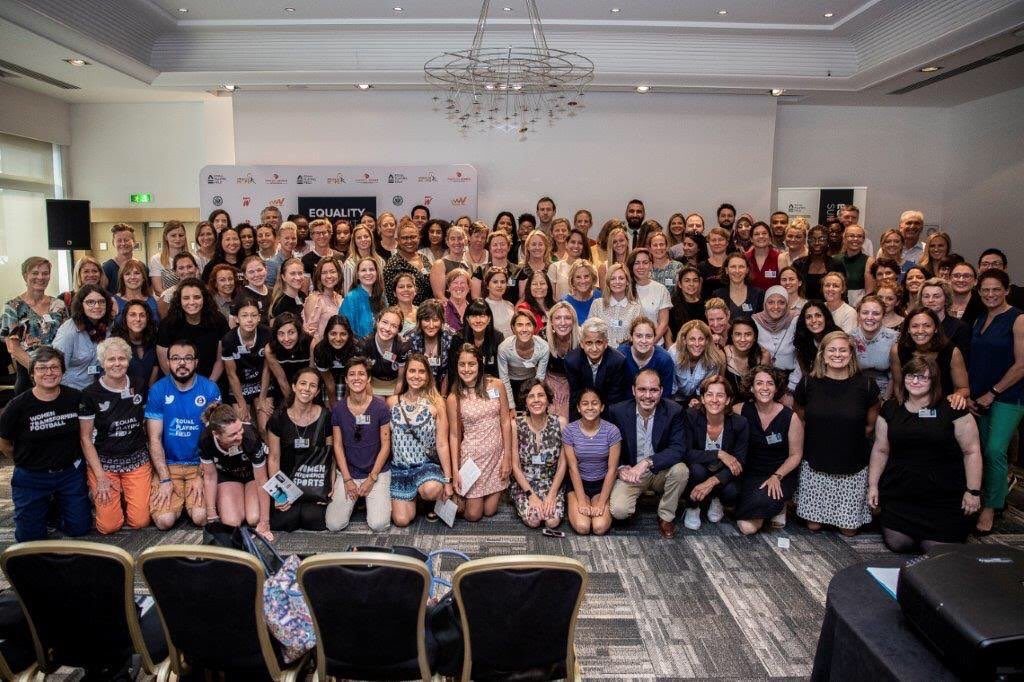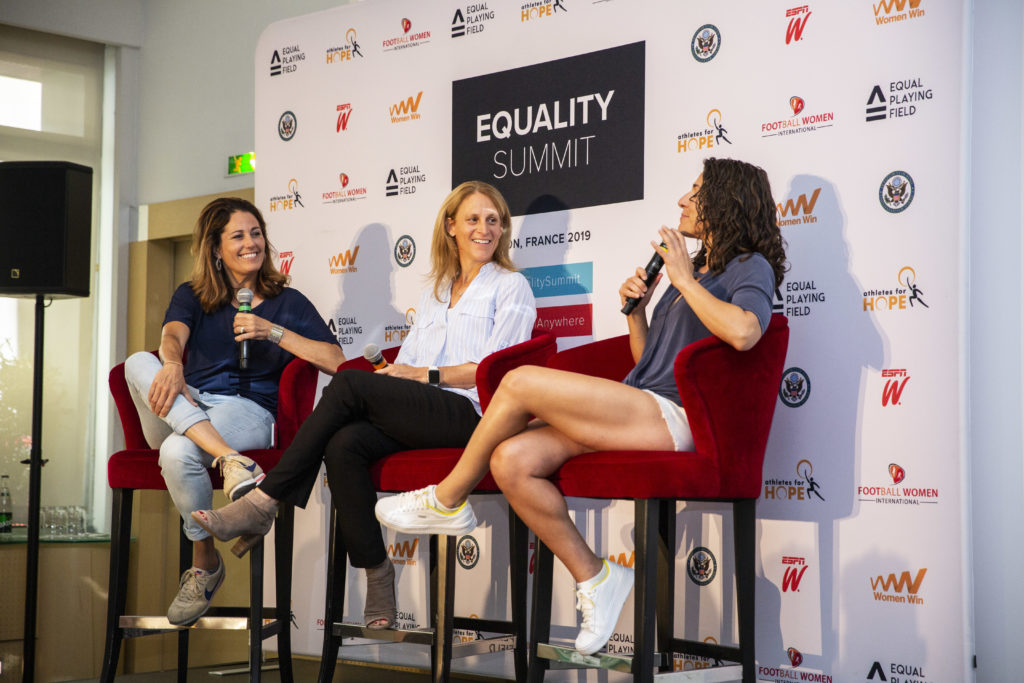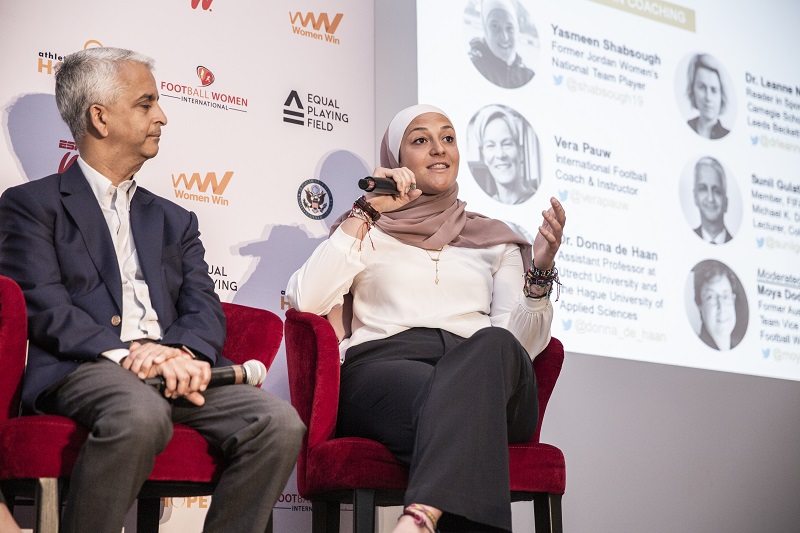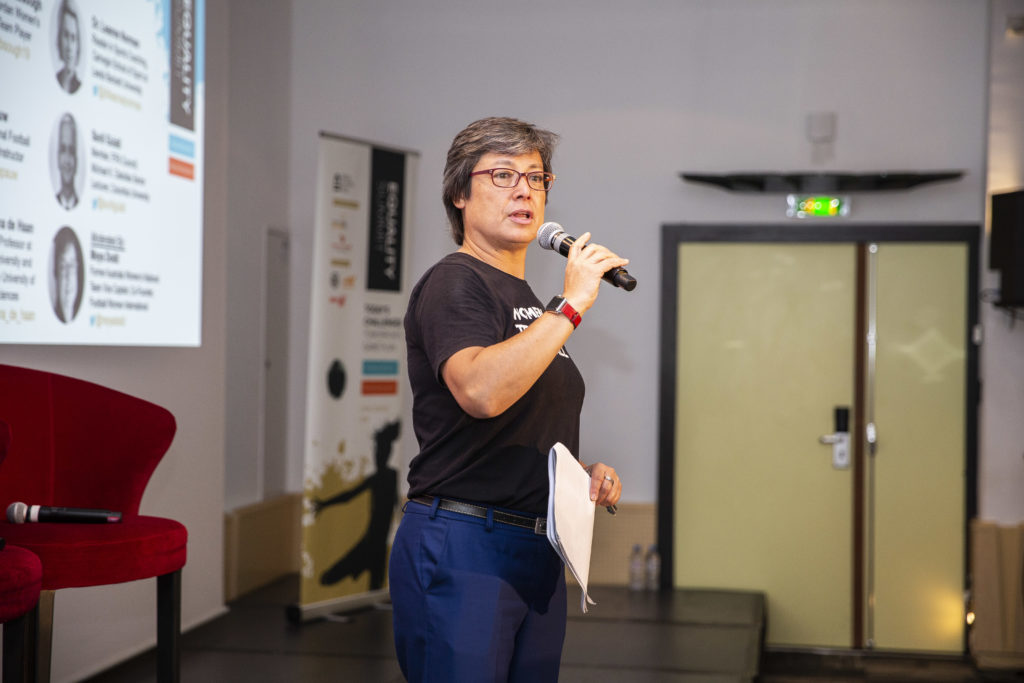Have you ever tried to lean forward on a plane during takeoff? It’s a weird sensation. You know in your brain that the plane is moving forward, yet physically you only feel the gravitational force that pushes you back into your chair. As someone who flies a lot, I think about it often. The idea of acceleration met by an equal and opposite reaction. Basic science I suppose. But this time, coming home from France and the FIFA Women’s World Cup, I thought about this sensation differently.
On that seven-hour flight, I scrolled through my photos, taking in the amazing images from three different games. Seeing the United States and France play in Paris may go down as one of my greatest all-time sports memories. The stadium was packed with fans from both countries singing and shouting the entire match. Men and boys rocking “Morgan” and “Rapinoe” jerseys were on the edge of their seat while the Frenchmen sang “Les Blues” from the deepest parts of their souls. The energy was as intense as the game. And all the while, I could only think about what this game means in the context of a larger conversation: gender equality.
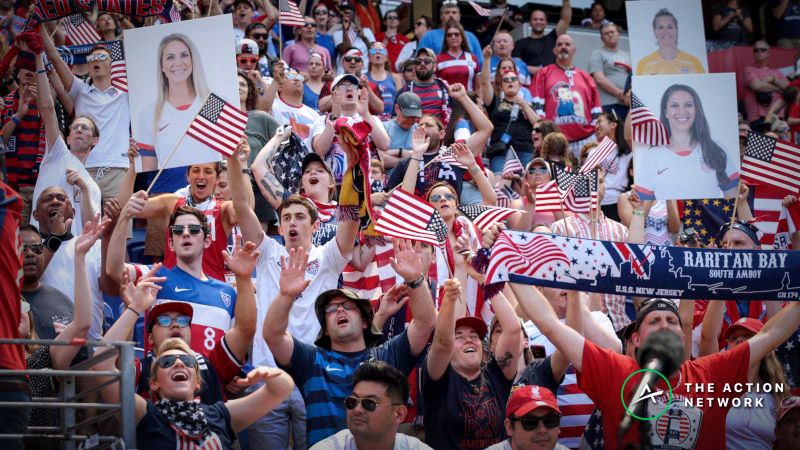
There was something about this year’s cup that felt bigger than the play on the field. Something more momentous than football. The wave of energy experienced during the Women’s World Cup of 1999 was mirrored only by the seismic equality conversations of 2019. But as the game has evolved, so has the fight. The 1999 battle for existence is a 2019 battle for justice. From lawsuits to sit-ins to the best player in women’s football sitting out of the World Cup, women footballers are demanding that the world become a more equitable place.
It was in that moment of takeoff out of Charles de Gaulle, that I understood what was happening. The quality of the women’s game is undeniable. The plane is indeed moving forward. But with that acceleration, there is an equal reaction from those in power to push back, to help women stay buckled up, to stay seated. Despite the record-breaking crowds, tv audiences, and jersey sales, women are still not valued, compensated, marketed, hired, protected, or promoted at the same level as men. We’re not talking peanuts versus pretzels. We’re talking peanuts versus caviar.
Through the gender equality program at Athletes for Hope, we want to accelerate change for women in sport. That’s why we partnered with Equal Playing Field and Football Women International to host a gender equality summit during the Women’s World Cup. We convened 150 of the most influential thought-leaders in the world to discuss issues facing women and girls that are often repressed or neglected on the global agenda. From gender audits to media coverage to safeguarding against abuse, we tackled the hard topics in an attempt to generate solutions to long-standing problems.
We kicked off the Equality Summit with two American legends of the game: AFH board member Julie Foudy and AFH athlete ambassador, Kristine Lilly, both stars of the 1999 U.S. Women’s National Team. Coupled with Spanish Team Captain and Utah Royals professional team player, Vero Boquette, these three took on issues of visibility, media coverage, and the desire to unite federations, government, athletes, and coaches to radically transform the game for women.
They were followed by an incredible line-up of academics, coaches, and change agents, including former U.S. Soccer President, Sunil Gulati, to discuss the need for women coaches in the game. As part of this session, Dr. Leanne Norman and Dr. Donna De Haan shared new research on the experiences of women coaches as told by elite level coaches and proposed new solutions in the hiring, promotion, and retention processes.
“People in positions of power are hiring based on ego not objective criteria. They are hiring by virtue of who they know, and who they’re comfortable with, rather than transparent processes. But the problem with that is the sports environment is built by men, led by men, occupied by men, and managed by men. So what feels familiar is to hire more men. This is why we need diversity at the top to break the cycle.” Dr. Leanne Norman, Leeds Beckett University
We concluded the morning with an intense and powerful discussion on safeguarding of athletes and new measures of protection for reporting, transparency, and impunity regarding sexual and physical abuse. The session featured four incredible speakers, including HRH Prince Ali Bin Al Hussein of AFDP Global and Kelly Lindsey, the Head Coach of the Afghanistan Women’s National Team.
“Exposure is the only way to treat a problem. You have to bring it to the light, help people heal, and minimize future occurrences. You have to get the right people together and fight from all directions.” HRH Prince Ali Bin Al Hussein
The afternoon sessions were equally as intense and impactful, starting with lightning presentations from Kelly Nascimento-DeLuca, the daughter of the great Brazilian football hero Pelé; Dr. Celeste Geertsma, the head Sports and Exercise Physician for FIFA; and Mary Harvey, the CEO for the Center for Sport and Human Rights. The presentations from these experts were followed by intimate break-out discussions on the topics presented, which included media portrayal, female physiology, and human rights.
“I used to think as a woman that if I put my head down and did a good job, I would earn the next opportunity or acknowledgement based on merit. But what I’ve come to understand over the course of thirty-plus years is that unless we lift our heads and use our voice as women, we’ll never have a groundswell of change. That if we continue to play a man’s game by women’s rules, we’ll never get there.” Dr. Celeste Geertsma
The afternoon sessions concluded with two additional panels: professionalization and commercialization of the game and advancing women decision-makers. Becca Roux, Executive Director of the USWNT Players Association along with Ed Ramsden, Director of Lewes FC, led discussion on the growth of the women’s game, along with Sally Horrox of Y Sport and Tatjana Haenni, Head of the Swiss Women’s Football FA. The panel openly discussed the rise and fall of women’s professional leagues, the imbalance in financial and media investment, and the undeniable momentum of women’s sports as the single biggest growth market in the current sports landscape.
“Everyone always wants to talk about revenue. Revenue is an output. We need inputs. We need investment in the women’s game at a priority level if we want real return on that investment.” Becca Roux, Director of the USWNT Players Association
The final panel featured Moya Dodd, former FIFA Executive Committee and Australian National Team Captain, as well as James Johnson of City Football Group and Ebru Koksal, consultant for FIFA and UEFA. Panelists discussed thought-provoking ideas around token females in power, the importance of gender audits and/or quotas, and the need for more than one woman at the top to produce visible change.
“As the first female Executive Board Member of any international football regulator (European Club Association), I had to make myself the most knowledgeable person in the room. I had to work harder than anyone else and make myself indispensable. That was the only way to keep my seat.” Ebru Koksal, Chair of Football Women International
Before the US WNT earned its fourth star and before Rapinoe took to the streets of New York with a microphone and sunnies, there was the momentum of our day to remind us that the plane is indeed going forward. We are making progress. The resistance will only last a little while because the inevitable is happening. The plane will fly. But until then, we must not be shy to ask for the caviar, as a mere acceptance of peanuts makes for a long flight.

